Lydia Millen speaks about abuse, authenticity and acclimatising to online fame…
Photography: Alexandra Cameron / Makeup: Kate Pope
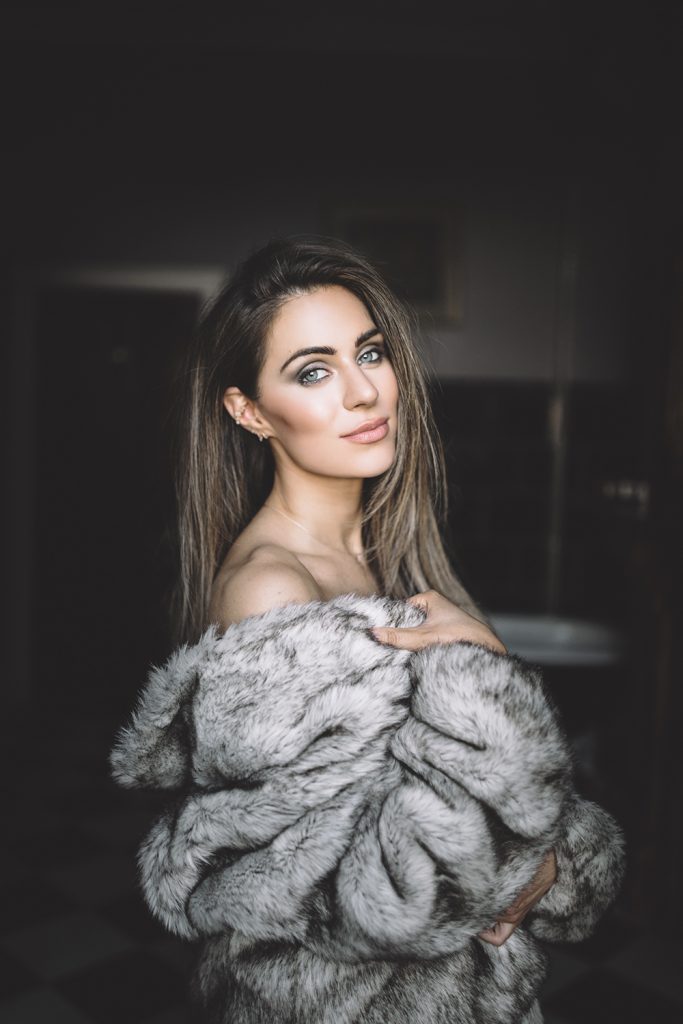
Lydia Elise Millen is sitting on the wooden floor of Anstey Hall’s grand ballroom. She’s wearing a Halfpenny London wedding dress, which is gathered around the top of her long legs, and is leaning against a regal looking chair.
Behind her, a bright beam of sunlight enters the room and ricochets against the wall to her left. It reflects onto her face and lights up her bright blue eyes; she squints, smiles and laughs. Then, once the sun gets too much, she blinks and resets for the next frame.
As the camera clicks and the images flash up, between the set, dress and smile, it looks like we’re in some sort of glamorous fairy tale with Lydia starring as the princess, who hasn’t a worry in the world. But this we know is not the case; it is not the case at all.
The last 18 months have not been all rainbows and ponies for the 29-year-old social media star, who started her online journey on Lookbook more than five years ago and is now one of the most recognised luxury bloggers from the United Kingdom.
On 13th December 2017, Lydia released a statement on Twitter entitled ‘I don’t know how to make it stop’, where she revealed the magnitude of online abuse affecting her daily life.
The attacks, she wrote, are “every second of the day… every time I upload a video, an Instagram, a tweet, a blog post”. Amongst other things, the perpetrators of the vendetta have reported her falsely to the ASA, contacted brands advising them not to work with her, and leaked her address online.
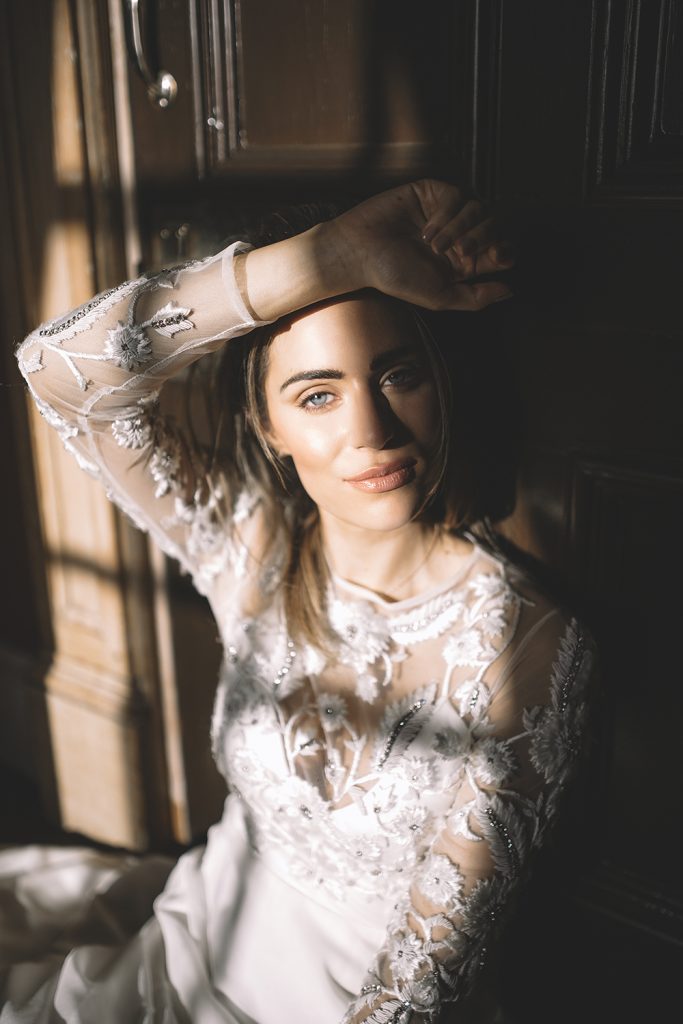
“I’m no longer allowed to open my front door by myself,” Lydia says sadly.
“It probably sounds quite dramatic, but some of the threats I’ve received, you can’t help but let it affect your everyday life.”
On the online world, especially once your career takes off, negativity is – sadly – a rite of passage. However, what Lydia faces isn’t the occasional insult, but systematic abuse. And it has pushed her to the edge of quitting the online world altogether.
“I actually think about stopping quite often,” Lydia continues.
“The problem is no-one is held accountable and new profile after new profile can be set up just to say awful things. Sometimes I think ‘this is just too much’.”
Why Lydia has been targeted so aggressively is confusing. Her content – luxury fashion and lifestyle – isn’t controversial, and nor is her personality. She’s warm, funny and self-deprecating. The conclusion, therefore, is that the group attacking her are simply envious of her ascent to online stardom in such a short space of time. The hatred stems from jealousy.
Indeed, whilst many are battling with algorithm changes and an overcrowded market, Lydia has defied the odds and grown at a startling rate. Since deciding to take YouTube seriously in January 2016, she has amassed more than half a million subscribers.
“The growth on YouTube just blew my mind,” she says. “I remember thinking ‘this just doesn’t happen to people like me’. And the amazing thing is that I came to YouTube thinking it was an audience of children, but my audience is 25-35 and I actually have more 55-year-old women that watch my videos than I do under 18s.”
Lydia prides herself on her close relationship with her audience and knowledge of their habits.

“I understand a lot about the women and men that watch my videos. I understand what they like and what they don’t like and where they shop and what they do when they shop. I think it’s more important that you know who your audience are rather than how many there are of them.
“It’s the reason that – apart from one with Sarah Ashcroft at the very beginning – I haven’t done a single collaboration, because if I were to collaborate with someone I wouldn’t know who their audience is and it could dilute the audience I have.”
The audience Lydia has – and their interest in the high-end products she recommends – is what brands are keen to access, and pay for. “I see the clicks, I see the sales, I see everything. I’m very much in tune with the analytical side of things,” she says.
“I know that the demand is there for luxury content and the buying power is there, too. The main bulk of my audience are women who are looking for that luxurious side of things. I can’t tell you how many people have bought the same car as me. It’s the most flattering thing.”
It does, therefore, frustrate Lydia when people talk about the concept of – and criticise her for not – being relatable. “Relatability is circumstantial, it’s subjective and not one size fits all. Selfridges, Harrods, Harvey Nichols, Net-a-Porter, My Theresa, all those stores are not there because they fund themselves, it’s a huge, huge industry.
“You know I often see people saying ‘I don’t want to watch a video where the YouTuber is revealing their new handbag’, and that’s fine – but just because you don’t want to watch it doesn’t mean that there aren’t lots of people who do want to watch that kind of thing.
“I think people need to learn to switch off the channels they don’t want to watch rather than sit through something that makes them unhappy. It’s the best thing I ever did.
“There were girls I used to watch and I’d be like ‘God, my life isn’t that together. I feel a bit weird and that I haven’t taken anything away from the video apart from my life sucks’. It made me feel inferior about my life.
“You don’t realise it’s happening and how the content is making you feel until you rid your life of it. It’s like you’ve taken off some sunglasses and you’re a bit like ‘wow, I’m seeing the world in a way that makes people feel good rather than feeling bad about myself.’

“It’s so important to watch videos that make you feel good and that you enjoy – then you don’t have to worry about who’s relatable because you’re watching something you enjoy. Watch the stuff that makes you happy.”
What makes Lydia happy is creating luxury content. It is a sector of YouTube that has – to date – remained largely unaffected by the change in the platform’s advertising regulations.
“I haven’t had a video demonetised yet,” she says.
“I don’t think videos about shoes and handbags are at risk, but I have seen there are channels being demonetised left, right and centre and it must be devastating because that ad money gives us such freedom with our channels and the opportunity to be picky about the collaborations that do come in.
“That’s what you want to do in this industry – secure money so that you don’t have to do sponsored content. That way you’ll always have your authenticity at the forefront. Once you’ve already made the money to cover your bills and rent or mortgage, everything that comes in after that is a bonus.”
The business side of social media is becoming more open, and as the market matures we’re seeing more candidness surrounding its financial conversations.
Last December, Sara Tasker of Me and Orla tweeted “This year I made over £200k, mainly whilst sat at my kitchen table, drinking gin & doing what I love. That’s incredible to me, so here’s a quiet little celebration tweet.
It’s all possible, friends x”, and last November Caspar Lee released a video in which he revealed that he made his first million through social media in 2012.

“It was incredible that he was confident and comfortable to say that on his channel,” Lydia says of Caspar’s video.
“I want to inspire other people to know that – even if you’re not good at grammar or writing – this can be an amazing career, but talking about the money side of things is scary territory.
“We can’t keep making content and videos and not earning from it, but I don’t know if talking about it benefits the industry because there are still so many people who believe that we shouldn’t have this opportunity – which is so sad.
“There is this misconception that it’s this easy career and it needs to be more known that it is hard. The people who have made it to the top have worked really, really hard to be there and just because you don’t see the behind-the-scenes, doesn’t mean it didn’t happen.”
Lydia admires the work of top bloggers and vloggers, but keeps her friendship group outside of social media.
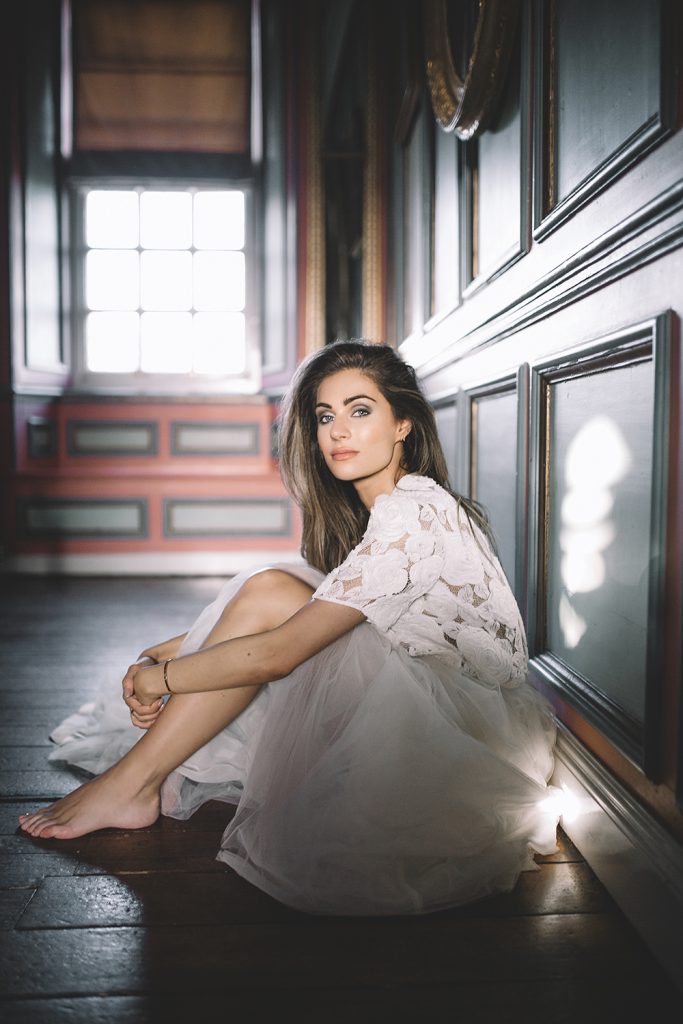
“I’m focussing a lot on my friendships outside because I feel quite vulnerable if I have friends within the industry, I don’t know why but I feel like it’s not real. It’s a strange one – in my old job I didn’t really make friends with the people who were in the office, I wouldn’t go out for drinks with them unless it was a work thing – and in this world we essentially are colleagues even though none of us work together. It’s a territory I don’t really know how to work yet.”
Although her friendships are mainly offline, Lydia is familiar with the territory of having a relationship online. Her husband – Ali Gordon – is a bona fide star in his own right. The pair got married in December in a stunning ceremony, which was filmed and shared on YouTube. The video has more than 600,000 views and almost 3,000 comments to date. Lydia’s first picture from her wedding day that she posted on Instagram to her 680,000+ followers has more than 165,000 likes.
“I very much feel like we’re a team,” she says.
“I hear a lot about people’s partners being unsupportive and not understanding, but Ali obviously gets it and understands and supports me – as I do him.
“We’re able to travel the world together and create each other’s content. We grew together. He’s an integral part of my career,” Lydia says and pauses.
She then smiles and continues: “Recently though he has been trying to get me to stop taking pictures in the same places he does and I’m like, ‘When you started out, you always used to take your pictures in the same place as me, so don’t become a diva on me now!”
Having Ali as a support system has made the worst of times that much more bearable for Lydia. Last year, a tweet she wrote about wishing brands would budget for photographers on trips landed her in the centre of a maelstrom of hate.
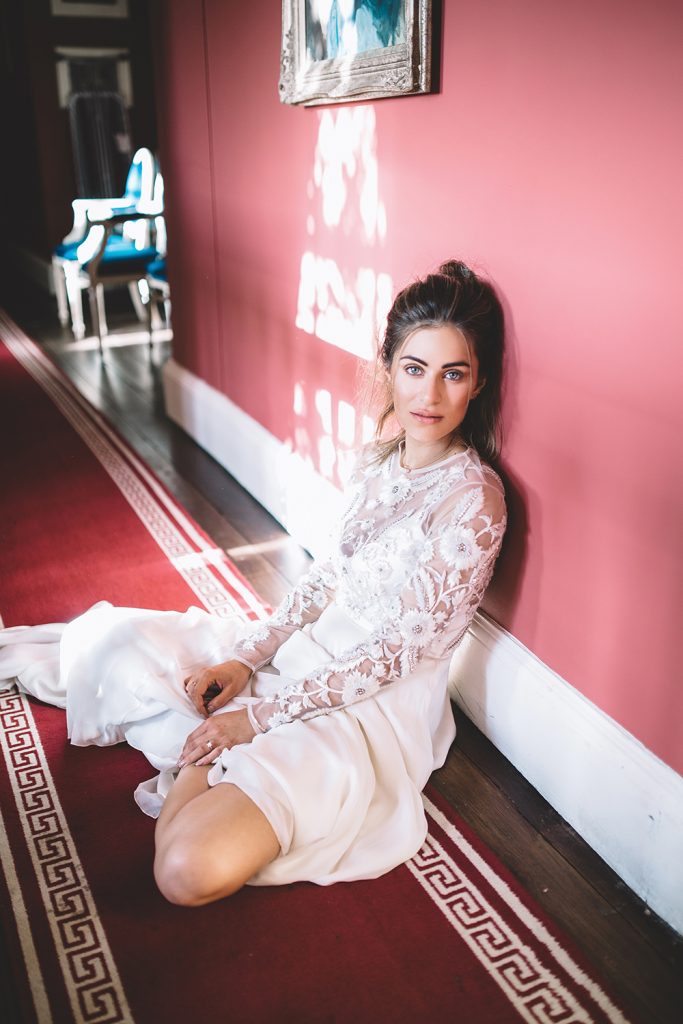
“It was four days. I found myself crying on the floor of my office. I had other people in the space get involved and add fuel to the fire because that gave the greenlight to their audiences to weigh in. The tweet was taken out of context and with a lack of understanding of where I had come from in my experience of becoming a blogger – because everyone’s experience is completely different.”
The experience left Lydia all the more determined to stand up for other people online.
“I feel like people don’t want to be ‘drama’ in the space so they just don’t want to come to people’s defence. I can’t sit back and let someone be victimised or set upon and not say anything – especially as I’ve been on the receiving end of it.
“There are these witch hunts and mob mentalities that happen on the internet over the silliest things and I’m not going to be the person that doesn’t say anything – I’d rather be the person who stood up and said ‘I think what you’re doing it wrong’ and that is my prerogative.”
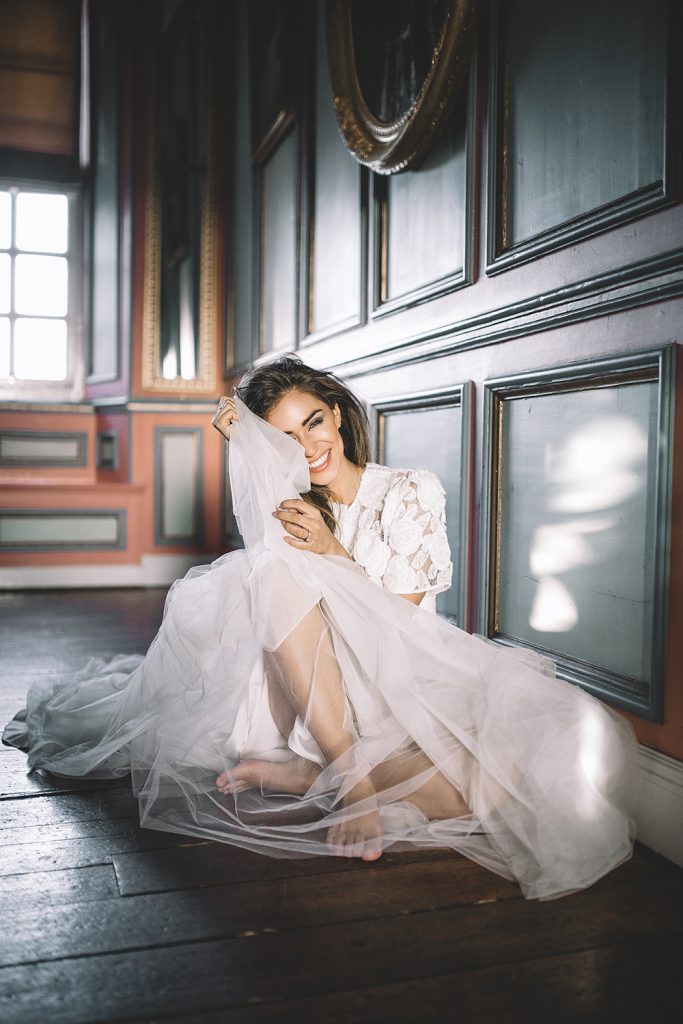
Lydia will not be beaten down by her own bullies, either. Despite having had a rough ride since taking off within the space and being pushed to the brink of quitting, she will not give into them. And she’s determined that 2018 will be positive.
“I feel like I’m really on the cusp of where I imagined I would want to be, and already the possibilities that are presenting themselves are amazing. “Ali and I are looking at other angles for our businesses together – it’s going to be the biggest year for us both, which is really exciting but scary at the same time.”
